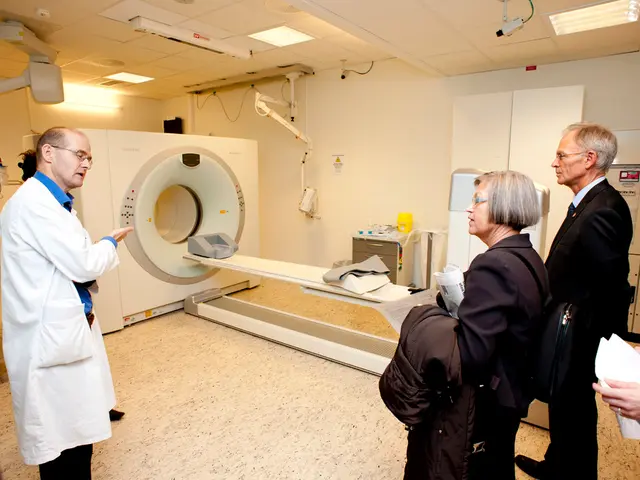Measles can't be prevented by Vitamin A. Specialists clarify the true functions of this vitamin.
The United States has been battling a significant measles outbreak, which has now reached 30 states. As of May 15, 2025, over 1,000 cases have been reported, and three confirmed deaths have been reported. The outbreak has been notably concentrated in western Texas and New Mexico. California, New York, Maryland, and other states have also reported measles cases. The Centers for Disease Control and Prevention (CDC) has advised travelers to exercise caution.
Measles, previously a well-controlled infectious disease, has experienced resurgences but has mainly been under control. Two major measles outbreaks occurred in the last few decades, including the Indiana outbreak of 2005, which were fueled by undervaccination.
Recent comments from Robert F. Kennedy Jr., the U.S. Health and Human Services secretary, have sparked interest in the use of vitamin A supplements as a potential treatment or prevention strategy for measles. However, the CDC still advises vaccination as the most effective method of preventing measles infections.
Monica Gandhi, an infectious disease specialist with the University of California, San Francisco, Daniel Ganjian, a board-certified pediatrician at Providence Saint John's Health Center in Santa Monica, CA, and Danelle Fisher, another board-certified pediatrician at Providence Saint John's Health Center in Santa Monica, CA, were consulted on the topic.
When it comes to vitamin A supplements, all three experts agreed that they are not a preventive measure against measles but can help mitigate the disease's severity in malnourished individuals. Vitamin A provides essential support for the immune system and has shown benefits when used as treatment for measles-related deficiencies.
Steroid and antibiotic treatments, such as budesonide and clarithromycin, have been suggested by Kennedy Jr., but medical experts have expressed concerns about promoting unproven benefits for treating viral infections like measles. There is a lack of clear evidence to back the standard use of these medications for measles treatment, and their use should be considered carefully.
It is important to note that the best way to prevent measles is through vaccination, especially in areas where outbreaks occur. The CDC recommends that young children receive their first dose between 12 and 15 months and their second dose between 4 and 6 years. Older children, teens, and adults who are not vaccinated should also speak with their doctors about getting one to two doses of the MMR vaccine.
Cod liver oil contains vitamin A, vitamin D, and fatty acids, making it a more complex supplement. While some people may need supplements to meet their daily dosage, it is essential to ensure Daily Recommended Intake (DRI) levels are not exceeded, as overconsumption can lead to vitamin A toxicity, causing damage to the body, including liver damage.
In resource-rich countries like the United States, most people can consume their required daily dosage through their diets. Only specific populations, including preterm infants or those with diseases that may interfere with dietary absorption, such as celiac disease or Crohn's disease, may require supplementation.
- Despite the ongoing measles outbreak in the United States, with over 1,000 cases reported and three confirmed deaths as of May 15, 2025, oil, in the form of cod liver oil, is not a recommended treatment or prevention strategy.
- Cod liver oil contains vitamin A, which is beneficial for the immune system and can help mitigate the severity of measles in malnourished individuals, but it is not a preventive measure against measles.
- The Centers for Disease Control and Prevention (CDC) advises vaccination as the most effective method of preventing measles infections, especially in areas where outbreaks occur.
- Robert F. Kennedy Jr.'s comments on the use of vitamin A supplements as a potential treatment or prevention strategy for measles have sparked interest, but the CDC still advocates for vaccination as the primary method.
- When it comes to food and food benefits related to measles, it is important to note that nutrients such as vitamin A can help mitigate the disease's severity, but they are not preventive measures.
- In the context of chronic diseases and general health and wellness, it is crucial to prioritize vaccination for the prevention of measles, as there is a lack of clear evidence to back the standard use of steroid and antibiotic treatments for measles.
- In the realm of politics, there has been debate about the use of supplements for the prevention and treatment of measles, but the consensus among medical experts is that vaccination remains the most effective method of preventing measles infections.
- While the recent measles outbreak has affected various states, including California, New York, Maryland, western Texas, and New Mexico, mental health, fitness and exercise, and crime and justice have not been directly associated with the outbreak. Instead, the focus should be on addressing the disease with reliable evidence-based strategies such as vaccination.








